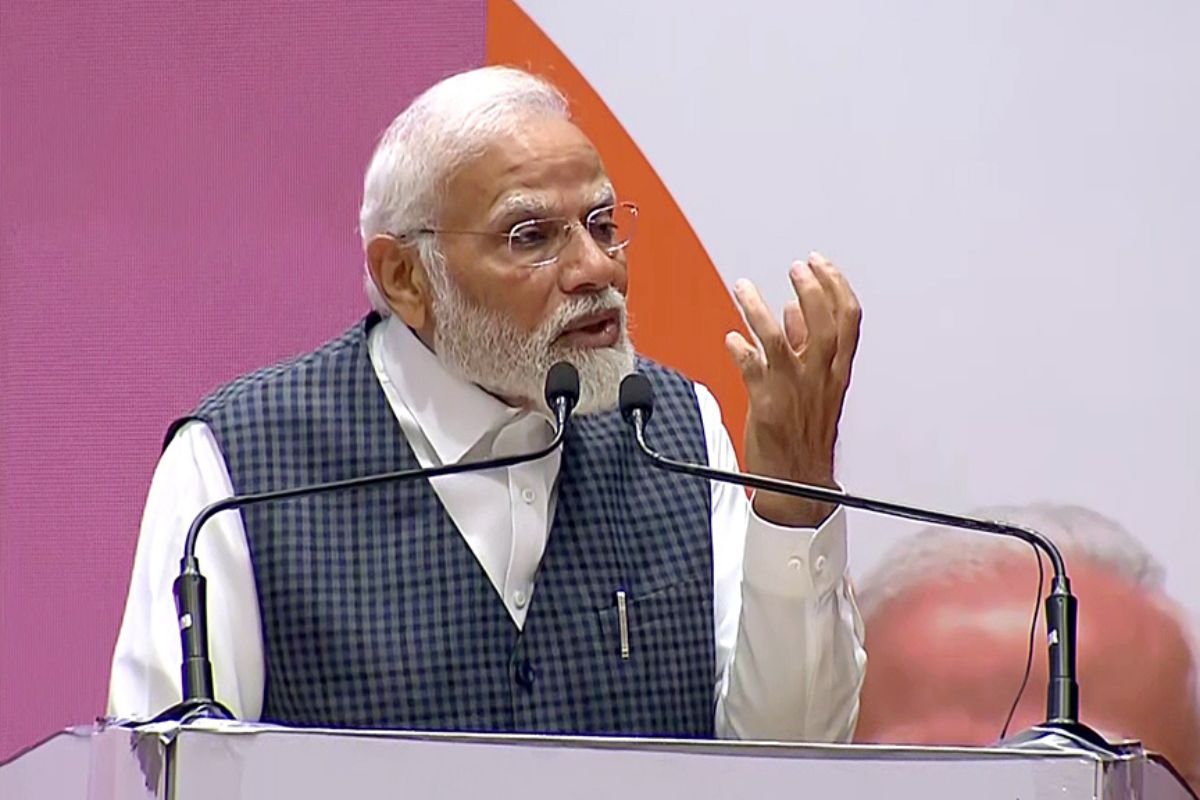PM to visit state again in early May
Prime Minister Narendra Modi is set to visit West Bengal again for campaigning early next month.
The Prime Minister said the ITR news was one of the two positive developments coming to light in the first year of the Amrit Kaal, the 25-year period up to the centenary year of India’s Independence in 2047.

Prime Minister Narendra Modi (ANI)
Prime Minister Narendra Modi on Monday said Income-Tax Returns (ITRs) filed this year showed a substantial increase in average incomes in the last nine years, and they had gone up from an average of Rs 4 lakh in 2014 to Rs 13 lakh in 2023.
Addressing the Madhya Pradesh Rozgar Mela via a video link, he said the number of people moving up from the lower income group to the upper income group had increased. The ITR figures confirmed that every sector of the economy had gained strength and there was a growing trend in fresh employment opportunities.
The Prime Minister said the ITR news was one of the two positive developments coming to light in the first year of the Amrit Kaal, the 25-year period up to the centenary year of India’s Independence in 2047.
Advertisement
The other development was brought out by a Niti Aayog report that 13 crore people had in the last five years come above the poverty line. The two positive developments were proof of declining poverty and widening prosperity in the country.
When decisions are taken with positive thought, right intent and complete dedication, the results overwhelm the whole atmosphere with positivity, the Prime Minister said.
Mr Modi said the latest ITR data had given another indication. This was the growing faith of citizens in their Government. The citizens are coming forward to pay their taxes honestly, and in large numbers. They know every Rupee they pay as tax is being spent on the country’s development.
They can see clearly that an economy which was at the 10th place in the world before 2014, today occupies the fifth place, the Prime Minister said. The citizens cannot forget the pre-2014 time when scams and corruption scandals were routine. Entitlements of the poor were looted before they could reach them. Today the entitlements of the poor are reaching their bank accounts directly and in full, he said.
The Prime Minister said the result of the stoppage of the “leakage” from the system was that the Government was able to spend much more than earlier on the welfare of the poor. Investments made on a large scale had created employment opportunities in every part of the country.
One example of this was the opening of common service centres, he said. Five lakh such centres were opened in the country after 2014, the year his Government took over. These centres served the people and at the same time offered jobs, he said.
Mr Modi said several financial initiatives have been taken along with long term policies and decisions in the fields of education, skill development and employment creation. This vision was reflected in the Vishwakarma scheme announced by him in his Red Fort Independence Day speech, he said.
He said the PM Vishwakarma scheme was formulated to update traditional skills of artisans according to needs of the 21st century. The scheme was allocated Rs 13 crore. The scheme would cover 18 skills and families associated with them would be provided all help.
Mr Modi said the scheme would benefit the section of the society which was often praised for its skills, but there were no effective efforts made to improve their lot. Along with training, the beneficiaries would be provided vouchers to buy new tools. The scheme would thus enable the artisans to brush up their skills, he said.
The Prime Minister said more than 5,500 teachers were appointed in primary schools at the Madhya Pradesh Rozgar Mela. He said he had learnt nearly 50,000 teachers had joined the primary schools in the State in the last three years. A nation’s character played a significant role in the development of a country, he said, and teachers contributed to making of the new generation and giving it direction.
Mr Modi said teachers would help in the implementation of the new National Education Policy, which gave equal importance to traditional knowledge as well as new technology. A new curriculum was prepared for primary education.
His government had carried out a major change regarding the use of mother tongue as medium of instruction. The avoidance of mother tongue as medium of instruction for children not knowing English, was a great injustice to them, and against social justice, he said.
The Prime Minister said his Government ended this injustice and school syllabi now included books written in regional languages. This would facilitate a major change in the country’s educational system, he said.
Advertisement